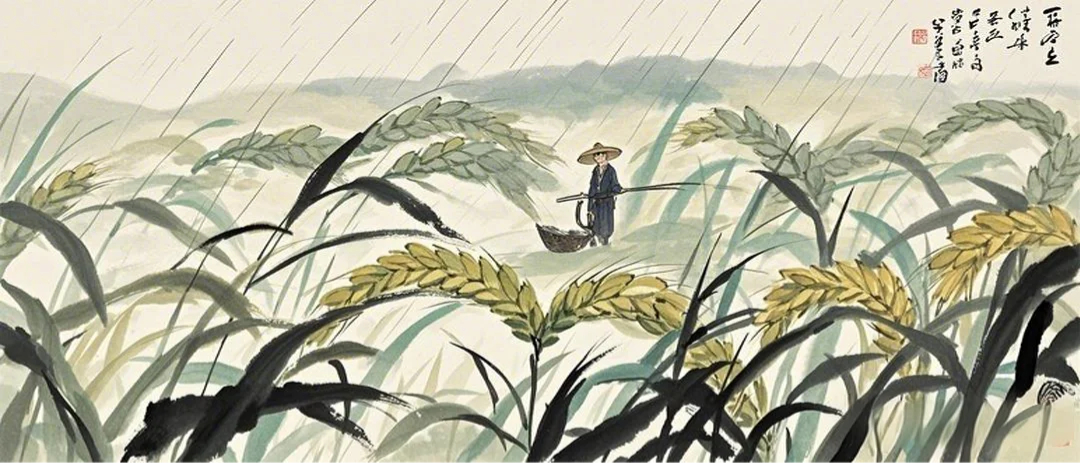- English
- Español
- Português
- русский
- Français
- 日本語
- Deutsch
- tiếng Việt
- Italiano
- Nederlands
- ภาษาไทย
- Polski
- 한국어
- Svenska
- magyar
- Malay
- বাংলা ভাষার
- Dansk
- Suomi
- हिन्दी
- Pilipino
- Türkçe
- Gaeilge
- العربية
- Indonesia
- Norsk
- تمل
- český
- ελληνικά
- український
- Javanese
- فارسی
- தமிழ்
- తెలుగు
- नेपाली
- Burmese
- български
- ລາວ
- Latine
- Қазақша
- Euskal
- Azərbaycan
- Slovenský jazyk
- Македонски
- Lietuvos
- Eesti Keel
- Română
- Slovenski
- मराठी
- Srpski језик
Mang Zhong
2025-06-05
I. Literal Meaning
“Mang": refers to the maturity of wheat and other plants with awns, such as wheat, barley, etc., at this time you need to seize the harvest, to avoid the rainy season leads to moldy grains.
“Seed": refers to the sowing of millet crops (such as rice, corn), at this time the temperature rises, abundant rainfall, suitable for seed germination.
Synonym: Mangseed is the agricultural node of “harvesting wheat with awns and planting rice with awns”, reflecting the double busyness of “harvesting” and “planting”.
Agricultural significance
The critical period of summer harvest and summer planting
North: harvesting winter wheat, sowing corn, soybeans and other autumn grains, commonly known as “three summers” (summer harvest, summer planting, summer management).
South: rice transplanting into the end of the rice planting, at the same time to grab the sunshine to dry the harvested rape, early rice.
Farmer's Proverb: “mango seed mango seed, even with the harvest,” “mango seed is not planted, and then planted useless,” emphasizing the urgency of the farming season.
Climate Characteristics
High temperatures and rain: Most of China enters the rainy season, and the middle and lower reaches of the Yangtze River begin to experience “meiyu”, which requires precautionary measures against flooding.
Crop demand: sufficient heat and light and rain for rice tillering, cotton buds to provide conditions.
Culture and Customs
Rituals and Prayers
Anmiao Ceremony (Anhui and other places): After planting rice seedlings in the fields, farmers use dough made in the shape of grains to sacrifice to the land god and pray for a good harvest.
Sending off the God of Flowers (mentioned in Dream of Red Mansions): Ancient people believed that all flowers wither after the Mango Seed, and folk held ceremonies to bid farewell to the God of Flowers.

Food and Drink Customs
Cooking Plums: During the plum ripening season, plums are pickled in sugar or salt to quench thirst (e.g. “Cooking Plums and Wine for Heroes”).
Eating junta cai (Zhejiang): a seasonal vegetable that is used to prevent summer heat and dispel dampness.
Mangzhao in Poetry
Lu You, “Time to Rain”: “When it rains and the mango seed is planted, rice seedlings are planted in all fields. The wheat rice is beautiful in every house, and the song of diamonds grows everywhere.”
Yuan Zhen, “Poem on the Twenty-fourth Day of the Season”: “Today is the day of the Mang Seed, and the green cicada is born at the right time of the year. The shadow of tongyun is high and low, and the sound of quail birds is heard.”
Natural Weather
Ancient people categorized the mango seeding into three seasons, reflecting the subtle changes in the natural world:
The first is the birth of the praying mantis: the mantis breaks its eggs and emerges to prey on pests.
The shrike (jú) begins to chirp: the bird begins to cry, signaling the arrival of midsummer.
The Third Waiting Period: The Anti-tongue bird, which imitates the songs of other birds, stops calling and avoids the Burrowing Bird.
V. Modern Significance
Agricultural guidance: Although mechanization is widespread, the festival still reminds farmers to grasp the planting window.
Cultural legacy: The Mangsiao custom has been included in the Intangible Cultural Heritage, such as the Anhui “Anmiao Festival”, which attracts tourists to experience traditional farming.
Inspiration for life: Symbolizing the wisdom of “following the time of the year”, the festival reminds modern people to respect the laws of nature and balance busyness with rest.
Summary
The Mangseo is not only a watershed in agricultural affairs, but also a meeting point between nature and humanity. It carries the ancient philosophy of “unity of heaven and mankind”, and continues the hope for a good harvest and the reverence for the order of time in modern society. As the proverb says: “Spring is a struggle for days, summer is a struggle for time”, the Mango Seed reminds people that in the fast-paced life, they also need to seize the opportunity to sow hope.


